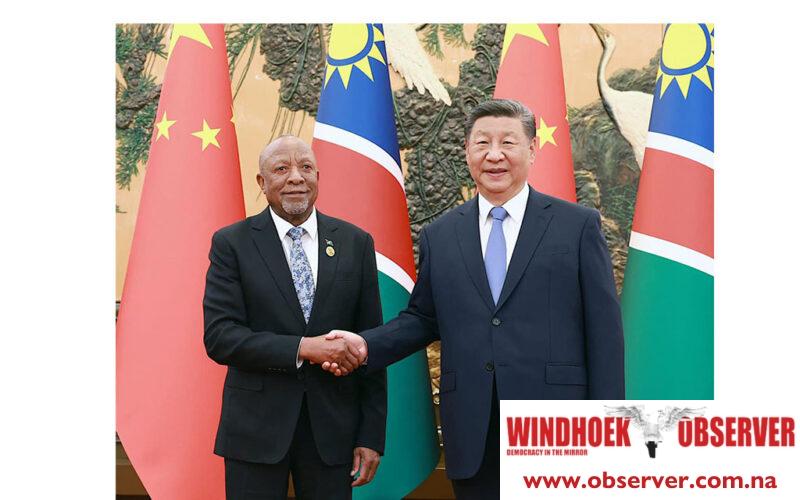Erasmus Shalihaxwe
China’s industrialisation has been rapid and Africa, given its relations with the country can draw valuable lessons from its development trajectory.
President Nangolo Mbumba while addressing a high-level meeting at the ninth Forum on China–Africa Cooperation (FOCAC) summit in Beijing, China, on Thursday said that industrialisation should also be viewed through the efforts of international institutions, including the United Nations (UN).
The UN has the collective responsibility to address international challenges and come up with solutions that could help countries achieve industrialisation and agricultural modernisation.
‘’In this regard, I am specifically referring to the upcoming UN Summit of the Future, which will be co-facilitated by Germany and Namibia this month during the 79th United Nations General Assembly. The Summit will adopt the Pact for the Future, which is also expected to address gaps in ensuring industrialisation and modernization on an equal footing, under the Sustainable Development and Financing for Development sub-section,’’ he said.
The summit is being held under the theme “Industrialisation, Agricultural Modernisation and Green Development: Routes to Modernisation”.
Mbumba added that the adoption of the pact will further reaffirm existing commitments, by UN member states, including to the sustainable development goals and the United Nations Charter, and move towards a reinvigorated multilateral system better positioned to impact people’s lives positively.
‘’It should also be noted that there can be no sustainable industrialisation without addressing the reforms of the international financial architecture. Mobilising international finance should be made easy and accessible to assist developing countries achieve their National Development Plans and ensure the collective realization of the Sustainable Development Goals by 2030,’’ he urged.
Mbumba further added that agriculture is the biggest employer in many African countries. Therefore, investments in modern equipment, tools and technology are essential to boost productivity and to secure livelihoods.
The sector remains a top priority in Africa and is necessary for food security and nutrition, for the well-being and development of people.
‘’Our country, Namibia, is arriving at ensuring food self-sufficiency for its people in the crops subsector. In order to support and encourage local production, the Namibian Government plans to establish agro-processing centres all over Namibia, particularly in the rural areas, for youth, cooperatives and farmers in general, to add value to our agricultural produce, develop new products, contribute to economic activities in the remote areas, and stimulate economic growth,’’ he told delegates.
Further, alluding that for these centres to be a success, Namibia needs to acquire affordable small-scale technologies, equipment and tools. Therefore, cooperation with the Government of China in this regard is welcome.




